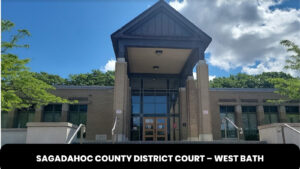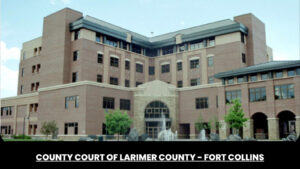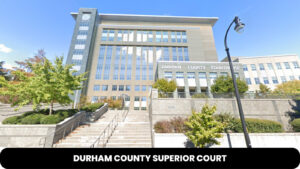San Luis Obispo County Superior Court – Juvenile Services Center
address
1065 Kansas Avenue
San Luis Obispo, CA 93408
Phone
(805) 706-3600
Phone Hours
Monday – Friday: 8:30 am-4:00 pm
Overview of San Luis Obispo County Superior Court – Juvenile Services Center
The San Luis Obispo County Superior Court – Juvenile Services Center serves as the hub for juvenile justice programs and initiatives in San Luis Obispo County, California. With a long history dating back over 50 years, the Juvenile Services Center strives to provide comprehensive and progressive services focused on the rehabilitation and positive development of youth.
History and Background
The origins of the Juvenile Services Center trace back to the establishment of the county’s first juvenile hall in 1964. Prior to having its own dedicated facility, the county had contracted with nearby Santa Barbara County to house youth offenders. The growing needs of San Luis Obispo County’s youth population necessitated the creation of a local juvenile hall and court to properly serve these individuals.
Over the next few decades, the juvenile justice system in San Luis Obispo continued expanding with additional probation services, diversion programs, and aftercare support. This growth reflected an increasing focus on providing youth offenders with targeted treatment plans instead of solely punitive measures. In the 1990s, the current Juvenile Services Center opened after securing $12.5 million in state and county funds for its construction.
Mission and Purpose
The mission of the Juvenile Services Center is to enhance public safety by holding youth accountable for their actions while also providing them with services and opportunities for positive development. This aligns with the overarching goals of the juvenile justice system to rehabilitate youthful offenders and help put them on a path towards becoming responsible citizens.
Specific objectives include:
- Providing a safe and secure environment for youth who require detention
- Operating a fair and equitable court system that upholds due process rights
- Implementing evidence-based treatment programs focused on behavioral change
- Partnering with families, schools, and community organizations to support youth
- Promoting victim restoration and community protection
San Luis Obispo County Superior Court – Organization, Services, and Resources
The San Luis Obispo County Superior Court has four main divisions that handle different types of cases:
Juvenile Division
The Juvenile Division handles matters involving minors under 18, including juvenile delinquency, dependency, and traffic cases.
Services and Programs
- Juvenile Drug Court – for minors with substance abuse issues
- Truancy Court – addresses chronic absenteeism
- Peer Court – diversion program for first-time misdemeanor offenses
Family Law Division
The Family Law Division handles matters related to families and children, including divorces, parentage, child support, guardianships, adoptions, and domestic violence restraining orders.
Services Offered
- Self-help assistance for parties without attorneys
- Mediation services
- Limited legal representation options
Civil Division
The Civil Division handles all non-criminal, non-family civil disputes, including:
Case Types
- Contract disputes
- Personal injury and property damage cases
- Malpractice claims
- Civil rights violations
- Complex litigation
- Small claims
Probate Division
The Probate Division handles wills, trusts, conservatorships, and estate matters. This includes:
Probate Case Processing
- Validating wills
- Overseeing distribution of assets
- Appointing conservators
- Determining rights to estate property
Criminal Division
The Criminal Division handles misdemeanor and felony criminal matters.
Felony Cases
- Violent crimes (homicide, assault, robbery)
- Drug offenses
- Sex crimes
- White collar crimes
Misdemeanor Cases
- DUIs
- Petty theft
- Simple assault
- Vandalism
- Minor drug possession
Programs and Services
To fulfill its mission, the Juvenile Services Center offers a diverse range of programs and services targeted to the specific needs of youth at various stages of the juvenile justice process.
Types of juvenile court cases
There are three main categories of cases handled in juvenile court:
Delinquency cases
Delinquency cases involve juveniles who have committed criminal law violations like theft, vandalism, or assault. These acts would be considered crimes if committed by adults. Delinquency cases make up a large portion of juvenile courts’ caseloads.
Status offense cases
Status offenses are acts that are only illegal due to the minor’s age, like truancy, running away, curfew violations, and underage drinking. They are non-criminal behaviors that are prohibited under juvenile codes.
Dependency cases
Dependent children are those who have been abused, neglected, or abandoned by their parents or guardians. Juvenile courts determine whether children need to be removed from the home for their safety and well-being.
San Luis Obispo County Juvenile Court
The San Luis Obispo County Juvenile Court is part of the county’s Superior Court system. It handles delinquency, status offense, and dependency cases involving youth in the county.
Location and contact information
The Juvenile Services Center is located at 1065 Kansas Avenue in San Luis Obispo. This address is for physical location only – all mail must be sent to the courthouse mailing address.
Contact information:
- Email: [email protected]
- Phone: (805) 706-3600
- Mailing Address: 1050 Monterey Street, Room 220, San Luis Obispo, CA 93408
Delinquency case hearings
Delinquency cases have hearings on Mondays and Thursdays at 8:00am at the Juvenile Services Center.
Dependency case hearings
Dependency case hearings are held on Wednesdays and Thursdays at 1:00pm at the Courthouse Annex, Department 12, 1050 Monterey Street.
Juvenile transfer information
For cases transferred from another county, hearings will be scheduled as soon as possible after transfer. Attorneys and parties will be notified of the hearing date and time.
Delinquency Cases
Delinquency offenses make up the majority of juvenile court cases. These involve minors who have committed acts that would be considered crimes if done by adults.
What are delinquency cases?
Delinquency cases are proceedings against juveniles who have violated criminal statutes. These acts include felonies like burglary and robbery as well as misdemeanors like shoplifting and simple assault. If committed by an adult, these would result in criminal prosecution.
Examples of delinquent acts
Common delinquent offenses include:
- Theft
- Vandalism
- Drug possession and sales
- Assault and battery
- Weapons charges
- Reckless driving
More severe violent crimes like robbery, rape, and homicide make up a small percentage of juvenile offenses.
Juvenile detention
Youth who are awaiting trial or disposition may be held in juvenile hall detention facilities. This aims to ensure they appear at hearings and prevent reoffending. Juveniles cannot be housed with adult inmates. Detention stays are kept as brief as possible.
Adjudication and disposition
During adjudication, there is a hearing to determine if allegations are true. If sustained, the case proceeds to disposition. This involves developing a rehabilitation plan that may include counseling, community service, restitution, probation monitoring, or placement outside the home.
Sealing juvenile records
Minors can petition to have records sealed once they turn 18 or complete probation. This helps avoid stigma and barriers when applying to college, jobs, housing, or the military.
Status Offense Cases
Status offenses are acts that are only illegal due to the minor’s age. While non-criminal, they can still result in court intervention.
What are status offenses?
Status offenses are non-criminal behaviors that are prohibited under the juvenile code. They include truancy, running away, violating curfew, underage alcohol possession, and ungovernability or defiance of parental authority.
Common status offenses
Some of the most common status offenses handled by juvenile courts include:
- Truancy and school absence
- Running away from home
- Violating curfew laws
- Underage drinking and substance use
- Beyond control of parents, ungovernable behavior
Consequences and interventions
For minor first-time offenses, the court may issue warnings, mandate counseling, or establish probation-like supervision. Repeat or more serious cases can result in short detention stays, required community service, or court-ordered treatment programs.
Criticisms and reforms
Some argue that status offenses unnecessarily criminalize adolescent behaviors. Reforms aim to provide community-based services and limit court intervention for non-criminal acts.
Dependency Cases
When children experience abuse, abandonment, or neglect, juvenile courts step in to protect their well-being.
What are dependency cases?
Dependency cases involve children who suffered or are at substantial risk of suffering serious harm due to abuse, neglect, or abandonment by their parents or guardians. This can include physical, sexual, or emotional abuse as well as medical, educational, or substance abuse neglect.
Reasons for dependency
Circumstances that may lead to a dependency case include:
- Physical, sexual, or emotional abuse
- Failure to provide adequate food, clothing, medical care
- Inadequate supervision leading to harm or risk
- Alcohol or drug abuse by parents impairing their ability to care for a child
- Domestic violence and environmental hazards
Removal from home
If the child is in immediate danger of harm, the court may order them removed from their home. Temporary out-of-home placements include foster care, relatives, or group homes. The goal is eventual family re-unification unless it is clearly against the child’s well-being.
Dependency hearings
The court process aims to balance the rights of parents with the best interest of the child. Hearings gather information to determine if abuse/neglect allegations are true and what interventions or placement are needed. Parents are provided reunification services.
Reunification or adoption
The desired outcome is remedying issues so the child can safely return home. If not possible, parental rights may be terminated and the child freed for adoption. Some children remain in long-term foster care.
Unique Aspects of Juvenile Court
Juvenile courts differ from adult criminal courts in a few important ways:
Confidentiality
Juvenile proceedings are closed to the public and records are kept confidential to avoid stigmatizing youth. Only authorized persons directly involved in the case may access the records.
Rehabilitative focus
The juvenile system aims to rehabilitate rather than strictly punish offenders. Dispositions are customized to meet each youth’s needs and address underlying factors contributing to delinquency.
Limitations on penalties
Consequences are generally less punitive than the adult system. Youth cannot be sentenced to jail or prison terms. Dispositions focus on community supervision, counseling, and skills programs.
The Juvenile Justice System
Here is an overview of how juvenile cases typically proceed through the justice system:
Police interaction
Police have broad discretion whether to arrest, issue a warning, or refer to counseling. Custody leads to referral to juvenile probation.
Detention
Youths may be detained awaiting hearings only if they pose a high flight or re-offense risk. Stays are brief – usually a couple weeks.
Court process
First is an arraignment and detention hearing. Adjudication determines guilt and disposition assigns rehabilitation plan. Periodic review hearings monitor progress.
Dispositions and placements
Options include fines, probation, community service, counseling, treatment programs, or placement out of the home.
Probation
Juvenile probation officers supervise court-ordered rehabilitation plans. They connect youths and families with needed services.
Trends and Reforms in Juvenile Justice
The juvenile justice system continues to evolve with new reforms and strategies:
Focus on rehabilitation
There is greater emphasis on rehabilitation over punishment. Confinement is used only when absolutely needed.
Community-based programs
More services are being handled through community-based diversion programs rather than court processing and incarceration.
Reduced caseloads and incarceration
Caseloads have dropped significantly in recent decades along with reduced detention rates.
Specialty courts and programs
Many courts now have dedicated drug, mental health, girls, and peer courts to better address needs. Restorative justice programs are also growing.
Leadership and Staff
The Juvenile Services Center employs a range of professionals including judges, probation officers, mental health specialists, teachers, and administrative support staff. The diverse team works collaboratively to provide well-rounded services that hold youth accountable while also promoting positive behavioral change.
The Juvenile Services Center manager oversees daily operations and implementation of programs in alignment with best practices in juvenile justice. Probation supervisors manage caseloads and supervision of youth on probation. Together, leadership and staff strive to uphold the center’s mission and continuously evolve services to fit the needs of local youth.
Key Issues and Initiatives
In striving to remain a model juvenile justice agency, the Juvenile Services Center actively seeks new ways to enhance its programs, facilities, and partnerships. Two key issues driving many current initiatives are expanding restorative justice practices and improving access to mental health services.
Restorative Justice Programs
Restorative justice aims to repair harm caused by crime by bringing together the victim, offender, and community. Programs based on these principles are increasingly being adopted to help rehabilitate youth. The Juvenile Services Center uses victim-offender mediation and community service to increase accountability. Plans are in place to grow participation in circles that allow open dialogue between stakeholders.
Mental Health Services
Given the high rates of mental health conditions among justice-involved youth, there is a push to increase on-site clinical services and trauma-informed practices.
Trauma-informed Care
All staff are receiving training on trauma-informed care to better understand youth behavioral issues in the context of trauma from abuse, neglect, or community violence. Screening is used to identify youth needing specific treatment.
Counseling and Support Groups
Additional grant funding has allowed for more mental health staff to facilitate counseling sessions and support groups on topics like anger management, life skills, and healthy relationships. Ongoing assessment helps match youth to appropriate services.
Community Outreach and Education
Recent initiatives also aim to strengthen partnerships and raise public awareness about juvenile justice.
Partnerships with Schools
New collaborative agreements are connecting probation officers with school resources officers to monitor at-risk youth. Information sharing enhances supervision while allowing youth to remain in school.
Public Awareness Campaigns
Campaigns through social media, print media, and community events help educate residents about juvenile rehabilitation programs and how they can support youth success. This fosters a restorative culture across the county.
Impact on the Community
Through its multifaceted juvenile services, the center produces wide-ranging positive impacts within San Luis Obispo County.
Reduced Recidivism
Recidivism rates of less than 10% demonstrate the effectiveness of evidence-based treatment options as alternatives to incarceration. Many youth leave with tools to make better choices and avoid re-offending.
Improved Outcomes for Youth
Beyond staying out of the justice system, youth benefit from targeted services that help them achieve educational goals, obtain employment, manage mental health needs, and avoid risky behaviors.
Increased Public Safety
A rehabilitative focus paired with close community supervision helps reform youthful offenders and prevent future crimes, supporting an overall safer San Luis Obispo County.
San Luis Obispo County Superior Court – Juvenile Services Center Online Court Resources
The San Luis Obispo County Superior Court – Juvenile Services Center serves the community of San Luis Obispo County, California. This article provides an overview of the online resources available through the court’s website, as well as additional online resources relevant to the local court system and courts in California generally.
Search Court Case Records in San Luis Obispo County
Search Civil Case Records
The San Luis Obispo County Superior Court does not provide online access to search and view civil case records. The court’s website has information and guidelines for obtaining civil case records directly from the court clerk’s office.
View Court Dockets, Calendars and Information
The court provides online access to view case calendars for the current date, by case type, or by court department. This allows the public to look up scheduled case hearings and court events. The probate calendar can also be viewed online.
Published Opinions and Orders
The court posts tentative rulings online for civil and probate cases. These tentative rulings, issued by the assigned judge, provide insight into how the judge is inclined to decide the matters before the court. Attorneys and self-represented parties can review tentative rulings in advance of their court hearing.
Court Forms and Information
Local Court Forms
The San Luis Obispo County Superior Court website offers many local court forms for download. Forms cover areas including civil, criminal, family, probate, and juvenile matters. Local court forms are essential for ensuring filings comply with the court’s requirements.
Statewide Court Forms
The California Courts website provides access to search for court forms approved for use in Superior Courts statewide. Forms can be located by name, number, or case type. Recently updated forms are also listed.
Interactive Court Forms
TurboCourt is a guided online interview that asks questions and uses the answers to populate the appropriate California Superior Court forms, which can then be printed and filed. A fee applies to use the service. Forms for family law, guardianship, small claims, and other case types are available.
Online Fine Payments
City Fine Payments
Parking citations and fines issued by cities within San Luis Obispo County, including San Luis Obispo, Grover Beach, and Pismo Beach, can be paid online for a fee. Grover Beach and Pismo Beach also allow online initiation of a parking ticket contest process.
County Fine Payments
Fines for traffic infractions and other types of cases within the San Luis Obispo County Superior Court system can be paid online via the court’s website. A service fee applies.
Self Help and Legal Research
Local Self Help Resources
The San Luis Obispo County Superior Court website offers detailed self-help information and instructions related to traffic cases, family law, civil harassment restraining orders, name changes, small claims, and other civil and criminal matters. Alternative dispute resolution and family court services are also outlined. The county law library further provides access to legal resources.
State Self Help Resources
The California Courts website offers extensive self-help information on topics like small claims, traffic cases, family law, landlord-tenant disputes, and probate. Links to additional self-help resources are provided, such as child support services.
Alternative Dispute Resolution
Information about alternative dispute resolution processes like mediation and arbitration is available. These alternatives to traditional litigation can help parties achieve mutually agreeable case resolutions. A link to local ADR programs is provided.
California Laws and Rules
California statutes can be searched online by code or browsed by table of contents. Statewide and local court rules are available to view for free.
Legal Aid and Free Services
Local Legal Aid
San Luis Obispo County has services like Senior Legal Services to assist residents age 60+ with certain civil legal issues at no cost. The county bar association offers a lawyer referral service and discounted consultations.
Statewide Legal Aid
Resources like California Rural Legal Assistance and LawHelp California provide free civil legal assistance and information to qualifying low-income residents across California. The State Bar of California offers resources for finding affordable legal help.
Future Directions and Conclusion
Looking ahead, the Juvenile Services Center will continue evolving to expand progressive programs and leverage new technologies while upholding its mission.
Expansion of Facilities and Programs
With juvenile caseloads projected to rise over the next decade, plans are in place to add capacity and introduce new evidence-based treatment options tailored to emerging needs.
Implementation of New Technologies
Upgraded case management systems and the introduction of telehealth services will improve coordination of care and expand access to resources. Digital tools can also enhance data analysis and outcome tracking.
Continued Focus on Evidence-Based Practices
Regular evaluation of programs and outcomes will allow for refinement of best practices supported by data. The Juvenile Services Center prides itself on being a learning organization.
Conclusion
For over 50 years, the San Luis Obispo County Juvenile Services Center has positively impacted countless youth and families. Its balanced approach paired with a commitment to progress distinctively serves the community’s needs. Ongoing innovation and dedication to juvenile rehabilitation will enable the center to transform lives for generations to come.
FAQs
What is the main purpose of the Juvenile Services Center?
The main purpose is to enhance public safety by rehabilitating justice-involved youth through accountability measures, treatment programs, and community partnerships that support positive development.
What types of crimes do youth commit to end up at the Juvenile Services Center?
Common crimes include theft, vandalism, drug offenses, assault, and robbery. Status offenses such as truancy can also result in placement.
What happens to youth after they leave the Juvenile Services Center?
Youth are often released on probation and monitored by probation officers. They may also be connected to community resources for counseling, tutoring, job training, and other services to aid reintegration.
Who oversees and manages operations at the Juvenile Services Center?
Operations are overseen by an appointed center manager who works closely with probation supervisors to implement programs aligned with best practices in juvenile justice.
How can the community get involved with the Juvenile Services Center?
The center welcomes community partnerships, volunteer work, participation in restorative justice programs, and attendance at public awareness events. Donations to support services are also greatly appreciated.
Q: How can I get a restraining order in San Luis Obispo County?
A: You can request domestic violence or civil harassment restraining orders by filing papers at the court’s Family Law Division. The self-help center can assist with forms.
Q: Where do I report for jury duty in San Luis Obispo County?
A: Jurors must report to the Paso Robles Courthouse location at 901 Park Street in Paso Robles, CA.
Q: How can I look up a civil or family case filed before 1990?
A: Cases filed before 1990 cannot be searched online. You must visit the courthouse records office and request the case file by case number.
Q: What number do I call to get information about a criminal case?
A: Contact the Criminal Records Division at (805) 781-5821 for details on pending or past criminal cases in San Luis Obispo County.
Q: How much does it cost to have a will prepared through probate court?
A: The court does not prepare wills. You must hire a private attorney to draft a will appropriate for your goals and assets. Expect fees of $200-$500 on average.






